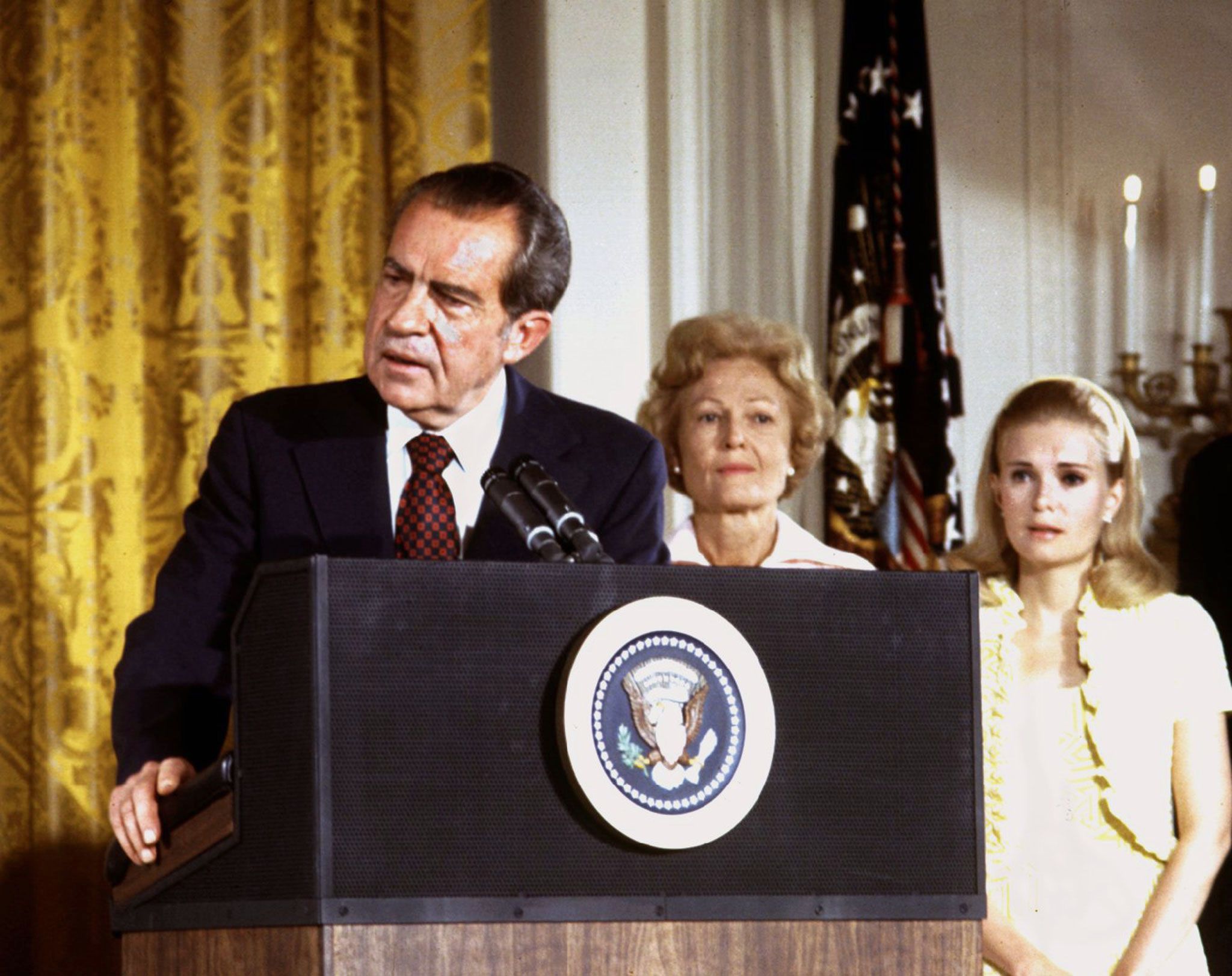
Newsweek published this story under the headline of "Nixon's Final Days" on May 8, 1978 after the publication of "RN: The Memoirs of Richard Nixon." In light of the recent debate involving President Donald Trump and his potential impeachment, however unlikely, Newsweek is republishing the story.
Richard Nixon published the first of his last words on Watergate as this week began - and revealed nothing quite so striking as the durability of his belief that it was all a terrible mistake. The opening worldwide wave of newspaper excerpts from his forthcoming memoir "RN" does concede Nixon's involvement in the cover-up from its earliest days and his persistent public misstatements about it. But the former President holds to defense that there was nothing criminal or impeachable about his role - only a fundamental miscalculation that old enemies with old grudges were out to get him. "I saw Watergate as politics pure and simple..." he writes. "Instead of exerting President leadership aimed at uncovering the cover-up, I embarked upon an increasingly desperate search for ways to limit the damage to my friends, to my Administration, and to myself."
What followed in the first newspaper installments was less a confession than a chronicle of sins of omission and errors of strategy - a skein begun, in his account, when he shrugged off the June 1972 Watergate break-in as "preposterous." He acknowledges having acquiesced in a scheme to use the CIA to turn off the FBI's investigation, and "as far as I was concerned," he says, "this was the end of our worries about Watergate." Nixon held stubbornly to his fatal first mistake - that Watergate "was just a public relations problem that only needed a public relations solution." It was John Dean who exploded that fantasy by telling the truth - or more of it, as memoirist Nixon now admits, than President Nixon did. "In the end," he says, "it would make less difference that I was not as involved as Dean had alleged than that I was not as uninvolved as I had claimed."
Fear: Nixon is more affecting in his account of the final days in the White House, when only his daughters and their husbands urged him to fight on - and even Pat began organizing their clothes to pack. "I screwed it up good, real good, didn't I? he recalls having told senior staffers Alexander Haig and Ron Ziegler. They both advised him to resign; so did Henry Kissinger - though, the excerpts say, he threatened to quit as Secretary of State and "tell the world why" if Nixon was harassed in retirement. But Nixon says he was more concerned to show the world that he was not "leaving from fear," and so instructed his people not to seek a deal for immunity from prosecution.
The night Nixon quit, he reports, Kissinger told him that history would yet judge him a great President. "That depends, Henry, on who writes the history," Nixon remembers having replied. Nixon's own version of history will fill the newspapers this week and reach the bookstores by mid-May, at $22.50 per 1,100-page copy. He makes his strongest claim to redemption, according to preview readers, in his summit's-eye view of foreign policy - particularly the thaw with Moscow and the opening to Peking - and his weakest in the brief for his innocence in Watergate. "Finally, I clung to excuses," he writes of his last days as President. The first excerpts from "RN" suggest that he is still clinging to them - that he still considers himself guiltless of anything much worse than making mistakes.
Uncommon Knowledge
Newsweek is committed to challenging conventional wisdom and finding connections in the search for common ground.
Newsweek is committed to challenging conventional wisdom and finding connections in the search for common ground.
About the writer
To read how Newsweek uses AI as a newsroom tool, Click here.








